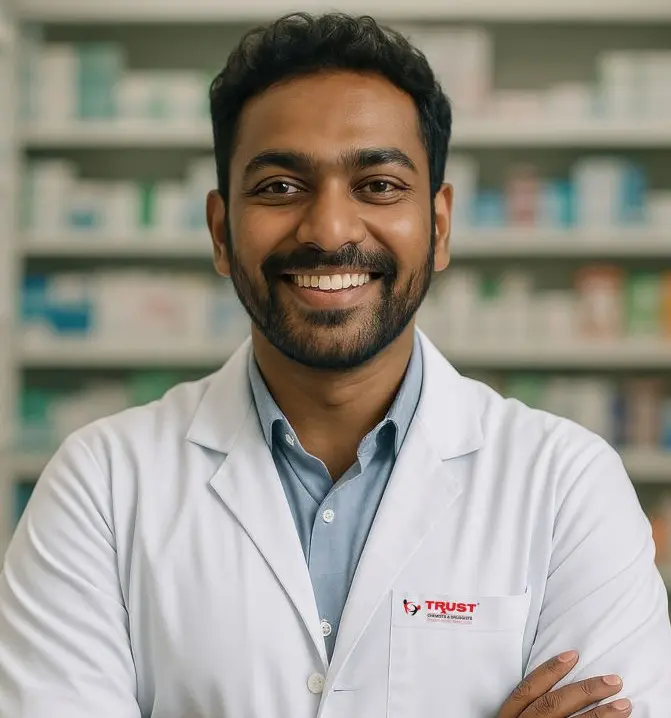
Blog
Spotting the Fakes: How to Identify Genuine Medicines in India

Hemanth Bothra
In a country like India, where access to affordable healthcare is both a necessity and a right, the rise of counterfeit medicines presents a silent yet dangerous threat. According to various reports, India accounts for a significant portion of the world’s counterfeit drug market. From antibiotics and painkillers to life-saving medications, fake drugs have infiltrated every corner of the pharmaceutical supply chain.
So how can you, as a consumer, ensure that the medicine you’re buying is real, safe, and effective? In this blog, we help you spot the fakes — and more importantly, safeguard your health.
Why It Matters: The Hidden Dangers of Fake Medicines
Fake medicines often:
Contain incorrect or no active ingredients.
Are contaminated or poorly stored.
Mimic genuine drugs with misleading packaging.
Taking counterfeit medicine can result in treatment failure, drug resistance, or even life-threatening side effects. That’s why it’s critical to know what you’re consuming.
1. Verify the Source: Buy Only from Trusted Pharmacies
The first and most important step is where you buy your medicines from.
Avoid unlicensed or unknown vendors, especially in crowded markets or online forums.
Opt for certified retail chains like Trust Pharmacy, which operate under strict procurement and dispensing standards.
Ask for a valid bill/invoice with your purchase — a good pharmacy always provides one.
Trust Pharmacy, for instance, ensures traceability and authentication of every product dispensed, giving customers peace of mind with every purchase.
2. Inspect the Packaging Carefully
Counterfeiters often mimic the outer appearance of branded drugs. Here's how you can tell the difference:
Check for spelling errors or unusual fonts on the packaging.
Look for tamper-evident seals — broken or resealed boxes are a red flag.
Compare packaging colors, logos, and holograms with previous purchases or official brand references.
Ensure the manufacturer’s name, address, and license number are clearly printed.
Genuine medicines usually have uniform packaging, sharp printing, and regulated label placement.
3. Use Authentication Tools: QR Codes, Scratch Panels & Mobile Verification
Many reputable pharmaceutical companies now use tech-enabled security layers:
Scratch-to-reveal codes that can be SMSed or entered online to verify the product.
QR codes or holographic labels that can be scanned through apps to confirm authenticity.
Government-supported initiatives like Track and Trace allow consumers to follow the medicine's journey from manufacturer to pharmacy.
If you’re unsure, check the company’s official website or contact their helpline.
4. Decode the Batch Number, MRP, and Expiry Date
Every genuine medicine pack must contain:
Batch Number (Lot Number) – This helps trace the production cycle and can be verified with the manufacturer.
Expiry and Manufacturing Dates – Check that the product is well within its shelf life.
MRP (Maximum Retail Price) – Fake products often use unrealistic or outdated pricing.
Tip: Cross-check the batch number and expiry on both the outer carton and the inner strip/blister pack. They should match.
5. Trust Your Senses: Look, Feel, Smell, Taste (If Applicable)
Use your instincts:
Is the tablet discolored or powdery?
Does it smell strange?
Is the texture, shape, or coating different from usual?
Don’t ignore subtle differences. If a familiar medicine suddenly looks or feels different, consult a pharmacist or doctor immediately.
6. Report Suspicious Medicines
If you suspect a medicine might be fake:
Inform your pharmacist right away.
File a complaint with India’s Central Drugs Standard Control Organization (CDSCO) via their online portal.
You can also contact the pharmaceutical company directly with batch details.
Consumer action plays a huge role in cleaning up the supply chain.
7. Why Trust Pharmacy is Your First Line of Defense
When you buy from Trust Pharmacy, you’re choosing:
A licensed, regulated, and professionally managed pharmacy network.
Direct procurement from verified manufacturers and distributors.
Digital traceability and electronic billing for every transaction.
Pharmacists trained to spot, reject, and report counterfeit stock.
Trust Pharmacy combines technology, transparency, and trust — ensuring your medicine is genuine, effective, and safe.
Your Health Deserves Authentic Care
Spotting fake medicine isn't just a skill — it's a life-saving habit. As consumers become more informed and vigilant, counterfeiters lose ground. Stay alert, verify every purchase, and choose pharmacies that prioritize your health, like Trust Pharmacy.
Your safety isn’t just in the hands of regulators — it starts with you.
Have doubts about a medicine you’ve purchased? Visit your nearest Trust Pharmacy outlet or contact our customer helpline for verification support.

